Popular on Food52
Continue After Advertisement
8 Comments
Bill M.
September 7, 2013
I've had the best success in preparing eggplant by slicing it thin (unpeeled), sprinkling it with salt, and popping it into the toaster oven on an oiled cookie sheet. (Top shelf, "toasted" for the same length of time as needed for a "medium rare" piece of toast, flipped over, and then re-toasted for an equal interval.)The results are consistent: golden brown, non-bitter, and non-greasy. I use it as a pizza topping, the main ingredient in moussaka or eggplant dip, or as a layer in lasagne. In any form, it's wonderful.
Sarah J.
September 11, 2013
I am convinced that toaster ovens are the best kept secret of the kitchen appliance world.
Slimfender
November 4, 2013
I wholeheartedly agree with this. I use my toaster oven much more often than I originally thought I would, especially when only cooking for one!
lsgerman
September 6, 2013
This is very helpful. I haven't grilled or baked eggplant yet, but really like it in this tajine recipe (http://food52.com/recipes/11056-moroccan-tajine-with-sweet-potato-chickpeas-and-eggplant). It doesn't call for salting the slices of eggplant. Just wondering if this would boost the eggplant flavor/texture? Thanks.
Sarah J.
September 6, 2013
I definitely think that salting the eggplant ahead of time could help it to absorb many of the other flavors in the tagine. Russ Parsons would say that since you're not frying the eggplant in oil, the salting process is unnecessary, but on the other hand, Deborah Madison would probably recommend you do it! If you do salt the eggplant, make sure to either rinse (and dry) it well or adjust your seasonings accordingly. If you do try it with salted eggplant, please let me know how it turns out!
Dr.Insomnia
September 4, 2013
I recently grilled some eggplant after soaking it in my traditional kebab marinade (a simple preparation of herbs, lemon, oil, and seasonings). I've used this marinade on everything from lamb, beef, chicken, to almost any vegetable, with great success... but never on eggplant.
It was bad. Unlike the other vegetables, the eggplant soaked up all of the lemon juice in the marinade. I know eggplant does this, it's part of why I like cooking with it because it's so good at absorbing flavors, but I was not ready for how badly it would perform here. The marinade has worked perfectly well on just about everything else I've stuck in it.
So I'm a little skeptical at the need to score the eggplant, at least if it's being marinated for an hour. And if marinading with other grilling vegetables with less sponge-like power than eggplant, I would add the eggplant later, or user a lighter marinade on them.
It was bad. Unlike the other vegetables, the eggplant soaked up all of the lemon juice in the marinade. I know eggplant does this, it's part of why I like cooking with it because it's so good at absorbing flavors, but I was not ready for how badly it would perform here. The marinade has worked perfectly well on just about everything else I've stuck in it.
So I'm a little skeptical at the need to score the eggplant, at least if it's being marinated for an hour. And if marinading with other grilling vegetables with less sponge-like power than eggplant, I would add the eggplant later, or user a lighter marinade on them.
Sarah J.
September 6, 2013
That's an interesting case, Dr.Insomnia. I've never heard of eggplants suffering from over-absorption of flavors due to cross-hatching, but maybe the acidic nature of the lemon has a particularly strong effect. Like you said, I think it depends on how strong the marinade is. Thank you for the heads up!
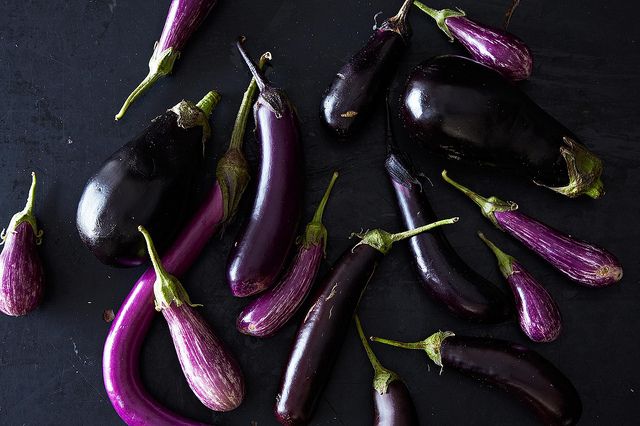
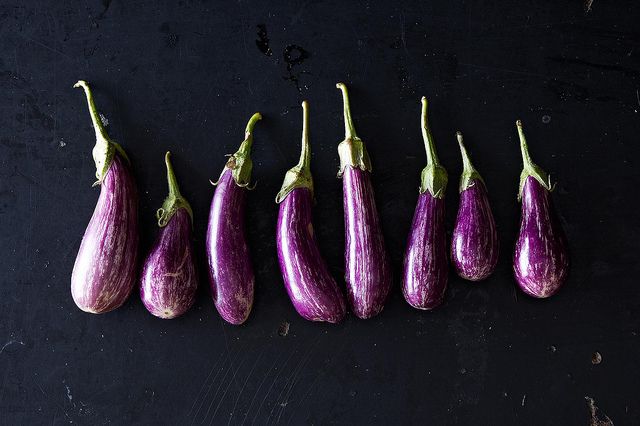
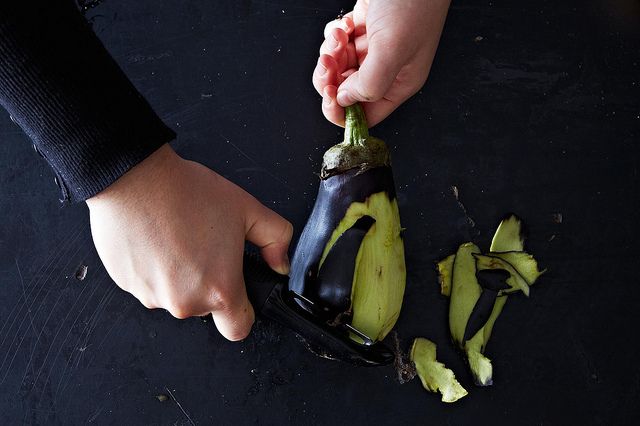
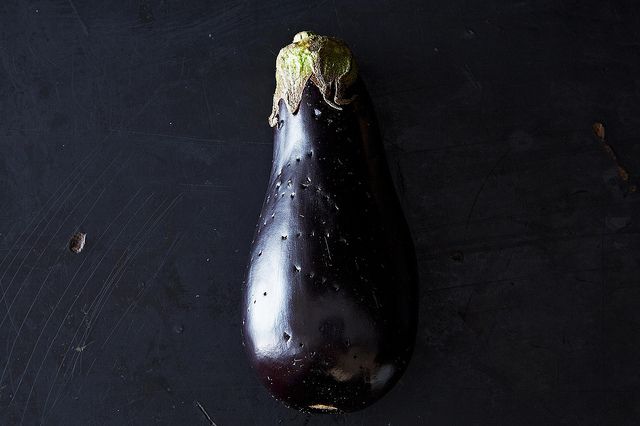
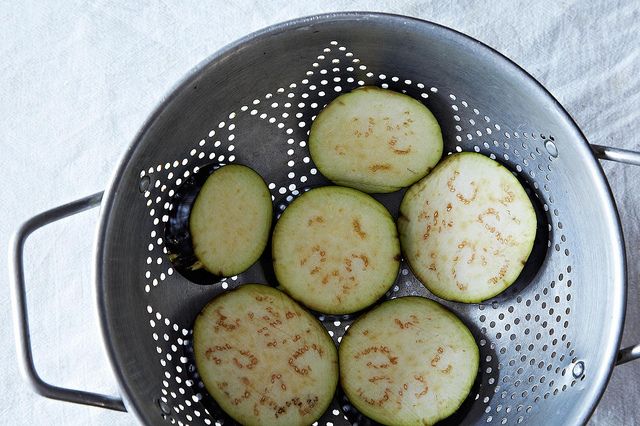
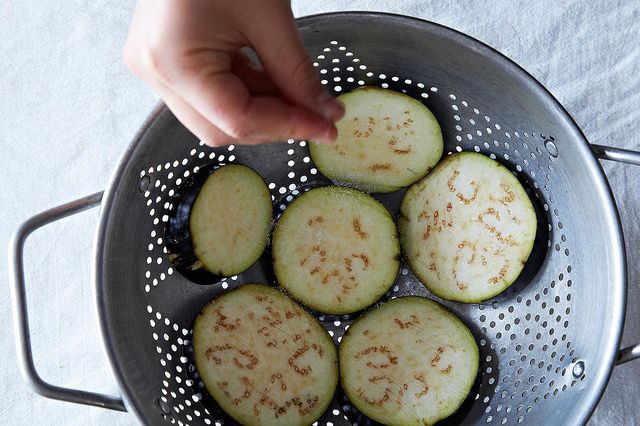
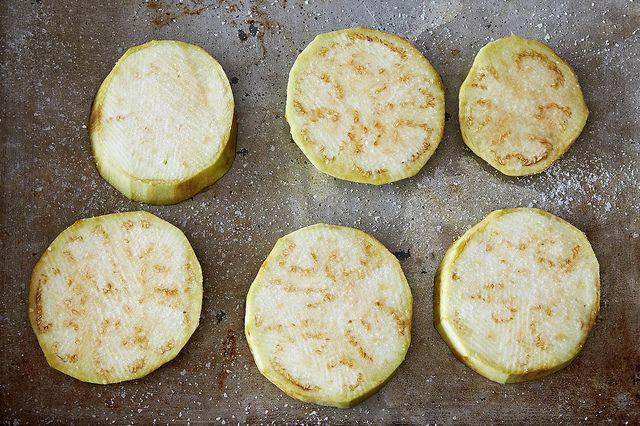
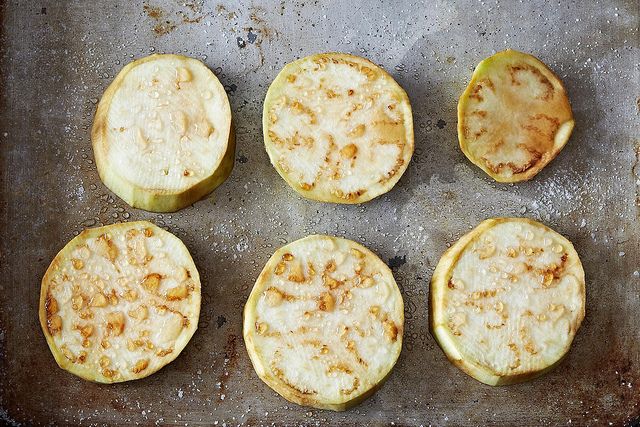
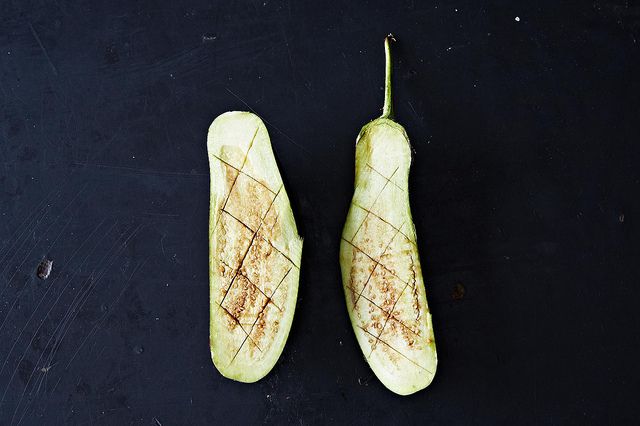

See what other Food52 readers are saying.